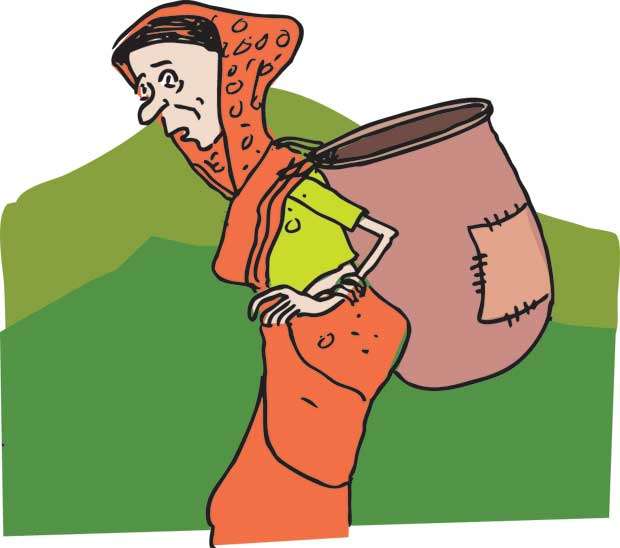Tea stories which make us depressed - EDITORIAL

2019-02-01

 he breathtaking sceneries at tea estates would not be complete without the pluckers who know the art of choosing which two leaves and the bud should go into their baskets. These pluckers have for generations smiled for photographs, appeared in television commercials and given the inspiration to writers and poets to come out with creative pieces of writing. But what we see and hear about them isn’t anywhere close to the real lives they are forced to live in tiny ramshackle rooms, called ‘line rooms’.
he breathtaking sceneries at tea estates would not be complete without the pluckers who know the art of choosing which two leaves and the bud should go into their baskets. These pluckers have for generations smiled for photographs, appeared in television commercials and given the inspiration to writers and poets to come out with creative pieces of writing. But what we see and hear about them isn’t anywhere close to the real lives they are forced to live in tiny ramshackle rooms, called ‘line rooms’. These pluckers also have survived miraculously on the pittance paid to them as their salary when others doing a little better than them have moved to using smart phones, full option vehicles and houses of their own.
Newspapers these days quite unusually have put the plight of the tea plucker under the spotlight. A humble demand of Rs 1000 a day as their wage hasn’t been met favourably by their paymasters. These workers have been promised a revised daily wage of Rs 700, made possible as a result of an agreement reached between the Estate Workers’ Union and Estate Employers’ Federation. It seems that the workers’ union that carries the voice of the workers to the authorities have let them down, because the workers maintain that they would not settle for anything less than what they demand.
These humble tea pluckers have been manipulated for years with the politicians and union reps often promoting their cause in the open, but benefiting from this whole exercise. Otherwise how could the two parties strike a deal that the workers don’t seem to fancy?
These humble tea pluckers have been manipulated for years with the politicians and union reps often promoting their cause in the open, but benefiting from this whole exercise. Otherwise how could the two parties strike a deal that the workers don’t seem to fancy?
The latest person to offer support to them is Infrastructure Development Minister P. Digambaram of the Tamil Progressive Front (TPF). The minister has said that his party will pull out of the Government if estate workers aren’t granted an increase of Rs 150 to their daily wage. The TPF has scheduled a meeting with Premier Ranil Wickremesinghe on 1 March, where the plight of the workers would be highlighted. But there is no guarantee that a solution can be found if the tea estate employers aren’t present at this crucial meeting.
As the agitation campaigns by the estate workers continue the rest of the island will have the time and the frame of mind to sip their tea and munch their biscuits. News seekers picking up bits and pieces from conversations have heard people share a common view that “the tea pluckers’ problem is not our problem”.
In this uncertain situation what’s positive is that the pluckers, mostly females, continue to find the time to engage in agitation campaigns despite having to pluck a quota of tea leaf a day. We have also heard stories about how financially indisciplined estate workers are and that their employers not showing any will as a result to give them a better remuneration for their efforts. Employees have also turned down workers’ requests for better pay citing a dip in profits.
Much has been said about the work of human development trusts in estates which work in unison with estate owners and the Government to better the lives of the tea estate workers. In much of the estates where these programmes are in operation we also get to hear about the adoption of the revenue share model where tea harvesters as a family earn better income by maintaining property and plucking the leaf as well. But these success stories are akin to unexpected sporadic showers during a drought which never wet the land in any significant manner.
Artistes like Freddy Silva, Annesley Malewana and Chitra Somapala tried their best to showcase the ‘stories behind our cups of tea’ through lyrical efforts which were much appreciated as the hot beverage itself. However the prose that has been used to relate the plight of the tea pluckers makes us depressed like a cup of tea that has run cold.
